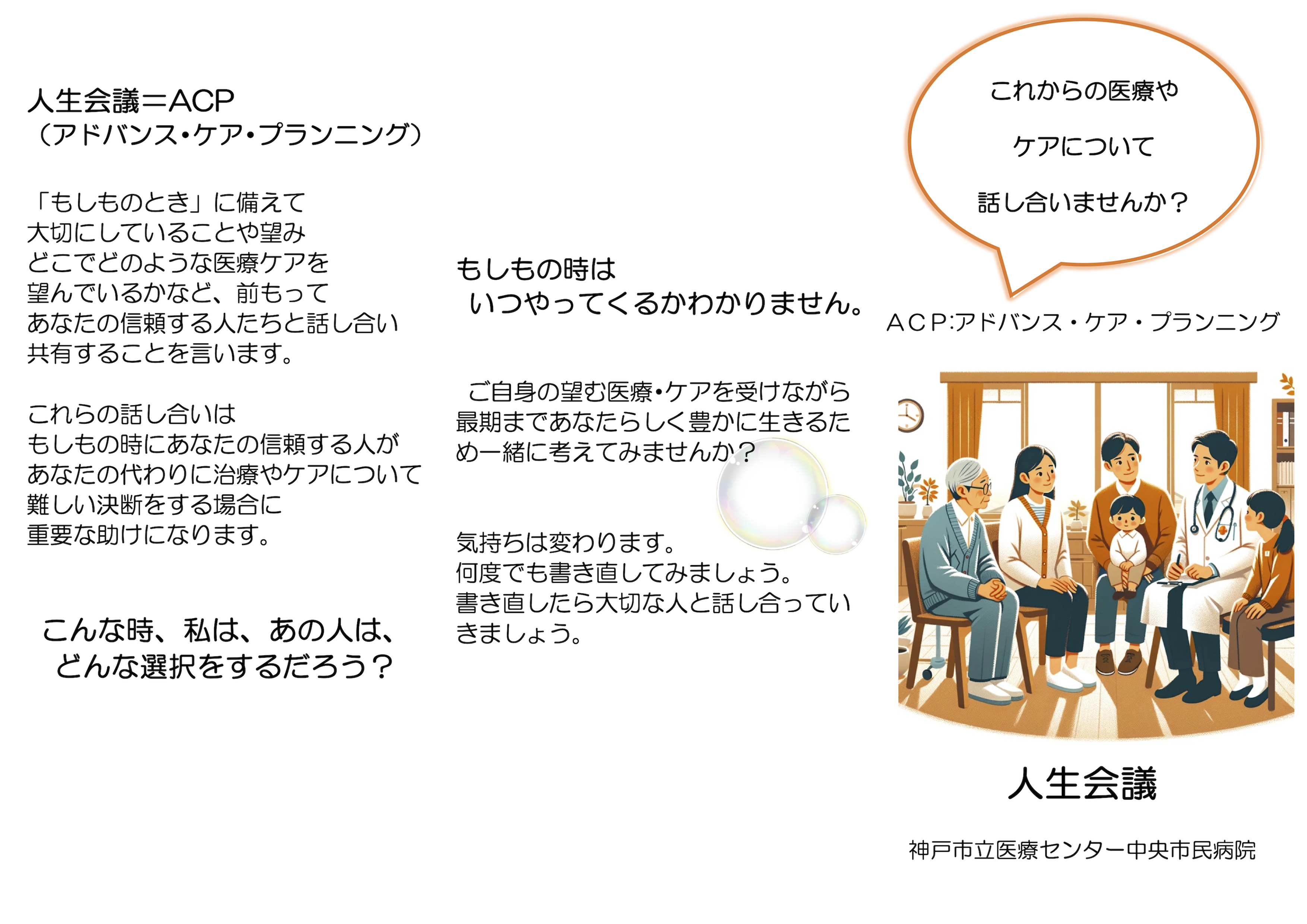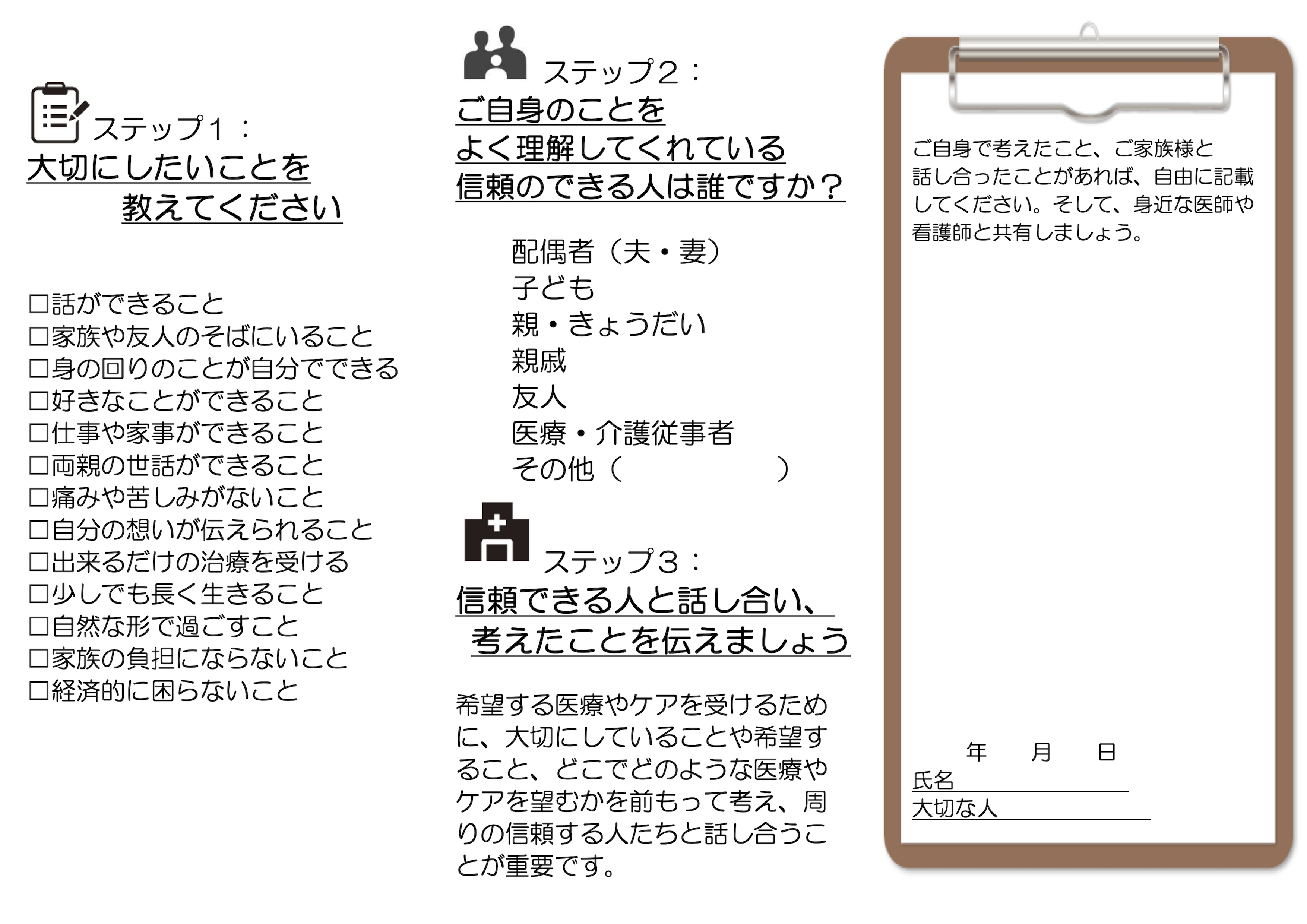皆さまは 「人生会議(アドバンス・ケア・プランニング:ACP)」 という言葉を耳にされたことはありますか?
当院では、患者様やご家族様が安心して医療・ケアを受けられるように、医師・看護師を中心とした ACP推進チーム を立ち上げ、「人生会議」の取り組みを始めています。
人生会議(ACP)とは
突然の病気やけがなど、予期しない「もしものとき」に備えて、
- あなたが大切にしていること
- どこで、どのような医療やケアを望むか
について、自分で考え、信頼できる人と話し合い、共有することを「人生会議(アドバンス・ケア・プランニング)」といいます。
誰でも、いつ大きな病気やけがをするかは分かりません。
命の危険が迫るような状況になると、約7割の方は自分で医療やケアの希望を伝えることが難しくなる と言われています。
だからこそ、日頃から考え、話し合っておくことが大切 です。
事前に話し合っておくことで、もしものときに、あなたの希望を尊重した医療やケアの選択につながります。
人生会議は、特別な年齢や健康状態が必要なものではありません。
元気なときから話し合いを始めることが大切です。
何から始めればいいの?
Step 1:あなたの「大切にしたいこと」を考えましょう
- 好きなこと、嫌なこと
- 人生の目標や大切にしている価値観
- どんな医療やケアを受けたいか
「できるだけ長生きしたい」「食べることをいつまでも楽しみにしたい」など、どんな小さなことでも大切です。
Step 2:信頼できる人を考えましょう
- 奥様やご主人
- お子様やご兄弟、親戚、ご友人
- 医療・介護に関わる専門職
など、あなたのことをよく理解し、安心して話せる方が望ましいです。
Step 3:信頼できる人と話し合い、考えたことを伝えてみましょう
信頼できる人と話し合い、伝えておくことで、もしものときにご家族やご友人が、あなたに代わって医療やケアを選択する際の大きな助けになります。
当院の取り組み
当院では、病棟や外来などに、写真のような 人生会議のパンフレット を設置しています。
考えたこと・話し合ったことをメモできるような工夫もしていますので、ぜひ手に取ってご覧ください。
少しでも気になった方は、まずはパンフレットに目を通していただき、人生会議について考えるきっかけにしていただければ幸いです。




